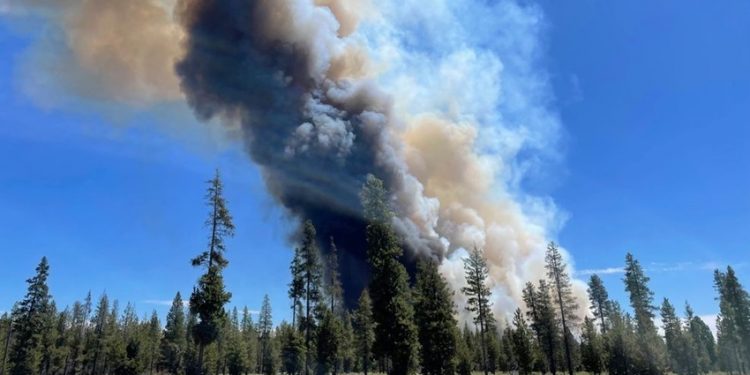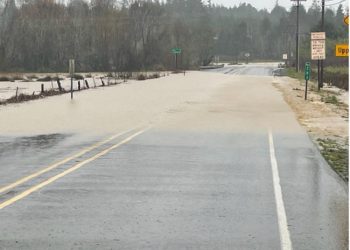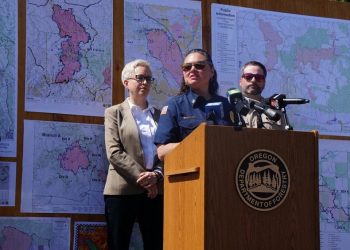Astoria, OR – Oregon is struggling with more than $300 million in debt from the most destructive wildfire season on record, a financial burden that state officials warn could take years to overcome. While the Federal Emergency Management Agency (FEMA) is expected to allocate additional funding for disaster recovery, experts say the federal aid will likely fall short of covering all costs, particularly for state-managed lands.
The wildfires, which ravaged large portions of Oregon’s state and private forests, have left communities and infrastructure in ruins. Federal funds, which are typically focused on assisting families and rebuilding federal infrastructure, are unlikely to address the full scope of the damage to state and private lands. This gap in funding is prompting state leaders, including Senator Jeff Merkley (D-OR), to push for additional federal support.
“Firefighting on state lands is a state responsibility, but rebuilding infrastructure on those lands is a different story,” Merkley explained. “We’re exploring every avenue to secure funding that will help us rebuild the vital infrastructure that was lost, especially in areas that have been hardest hit.”
The senator, who has been a vocal advocate for increased wildfire preparedness, argued that Oregon—and other Western states facing similar challenges—requires a much larger and more proactive federal response. “We need a lot more support from the federal government to tackle this challenge,” Merkley said. “That means more funding up front for forest management, more support for fire crews, and more help for lands that aren’t typically considered a federal responsibility.”
While FEMA disaster recovery funds are primarily allocated to help individuals and restore federal infrastructure, Senator Merkley emphasized the need to expand this assistance to include rebuilding on state and private lands, areas often overlooked in previous disaster packages. “The way these recovery packages are structured, they prioritize families and federal infrastructure, but we need to ensure the funds can be stretched further to help rebuild the local economies that rely on state-managed lands,” Merkley added.
The financial strain on Oregon’s recovery efforts has been compounded by rising operational costs. In addition to the debt from the 2024 wildfire season, the state is grappling with the expiration of federal pay increases for wildland firefighters. These raises were included in the 2021 federal infrastructure bill and are critical for attracting and retaining the highly skilled workforce needed to combat wildfires. However, there are growing concerns that the pay increases, which have been temporary, may not be extended.
“We’ve seen a significant increase in the demand for qualified firefighters, and without adequate compensation, the state could face shortages just as the wildfire seasons grow longer and more severe,” Merkley warned. “Ensuring that firefighters are properly compensated is essential for our ability to protect communities and lands in the years ahead.”
As the 2024 wildfire season exposed the limits of current funding mechanisms, Western states have been working together to urge a more comprehensive federal strategy to address the mounting costs of wildfire prevention, management, and recovery. With climate change fueling more frequent and intense fires, experts warn that the financial burden of wildfires could become an even greater challenge in the future.
For Oregon, the immediate priority is securing the funds necessary to rebuild infrastructure on state-managed lands, prevent further economic damage, and ensure that the state’s wildfire response workforce remains adequately funded and supported.
The coming months will be critical as state and federal lawmakers work to identify additional funding streams and policies that can support wildfire recovery, prevent future disasters, and ensure that local communities are not left to bear the full brunt of the crisis.
As Oregon continues its recovery efforts, the need for a sustained and coordinated federal response remains clear—and without it, the state could face even greater financial challenges in the years ahead.













